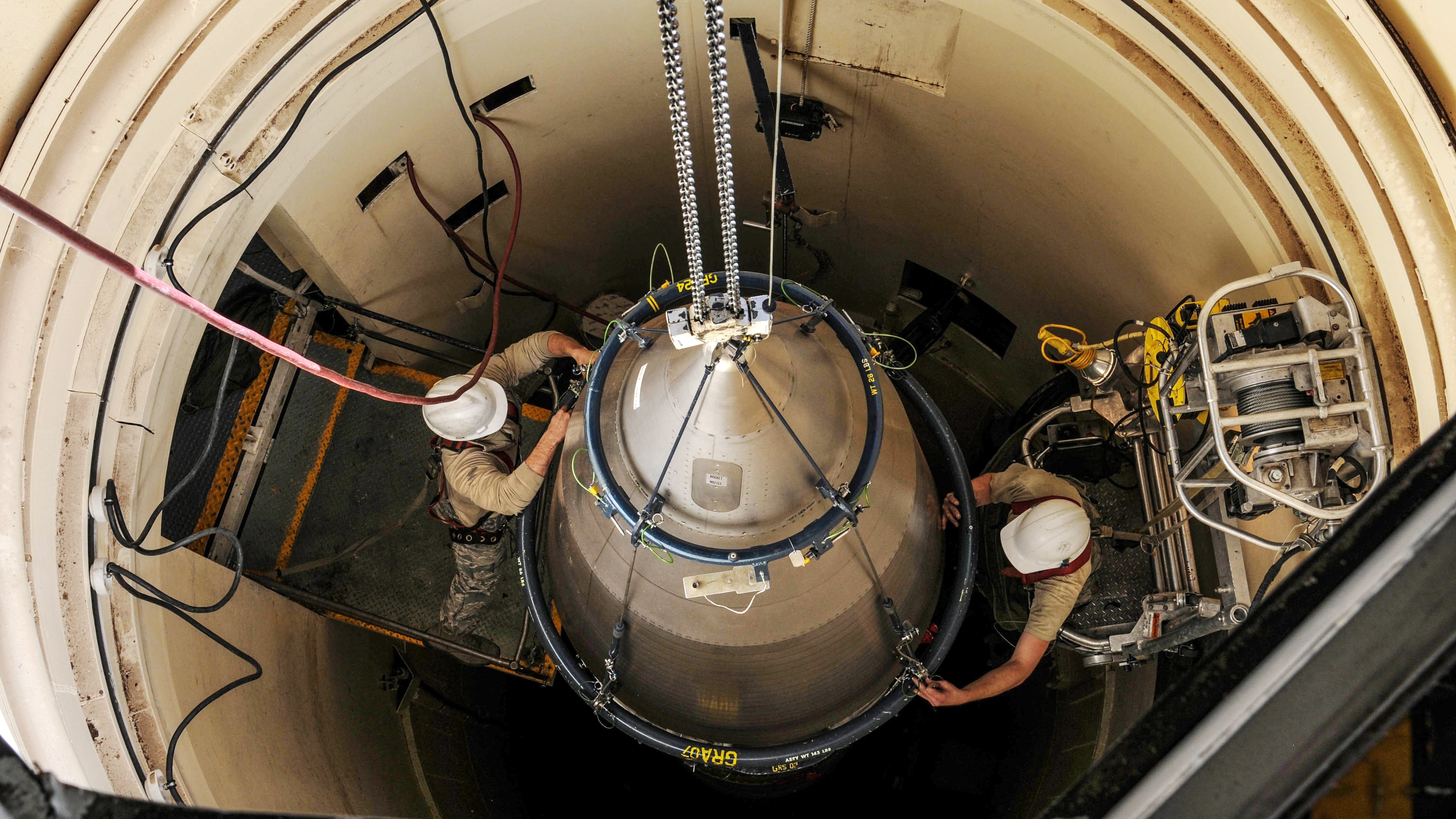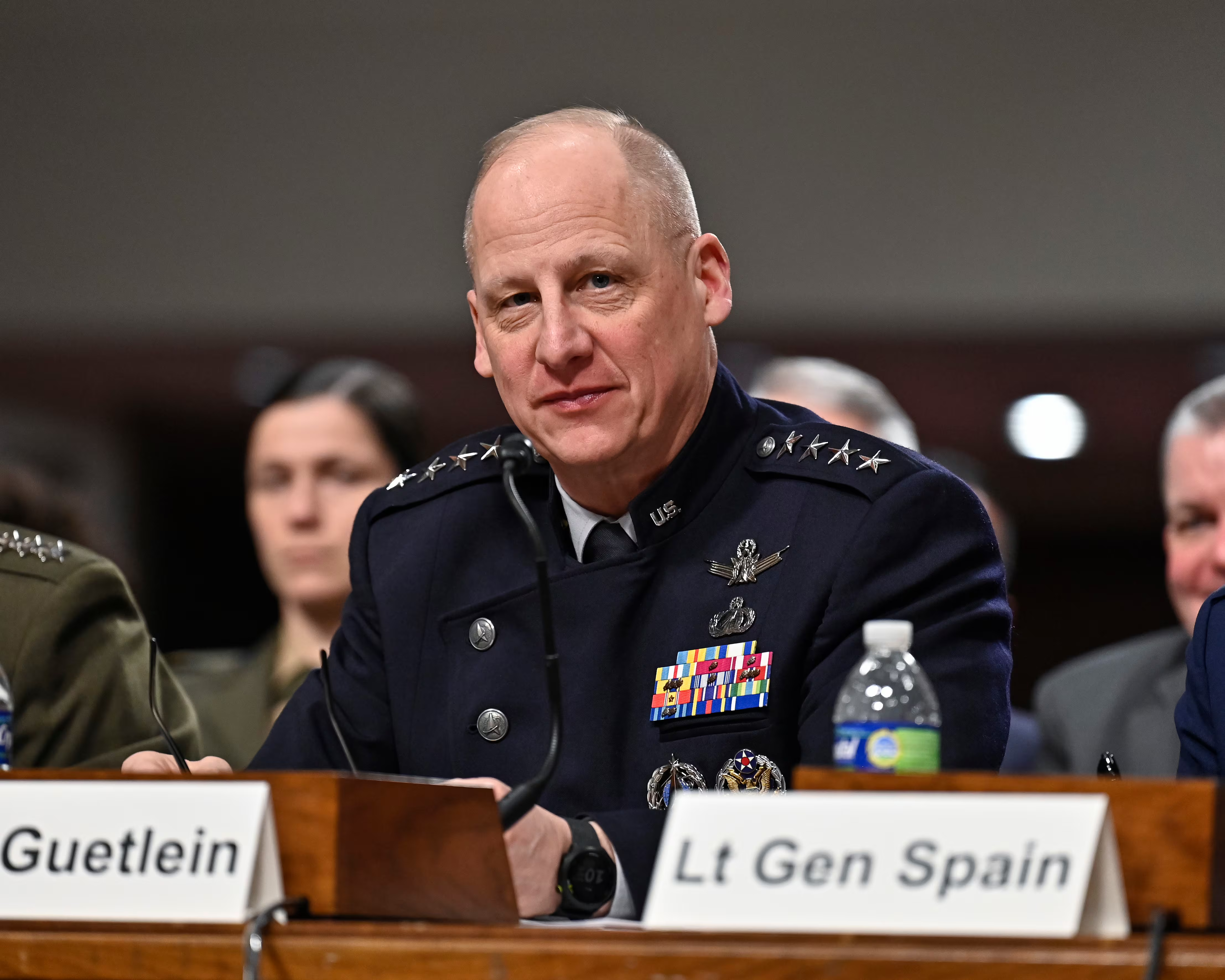WASHINGTON — Boeing’s risk reduction contract for the Air Force’s Ground Based Strategic Deterrent program is functionally cancelled, the company announced Oct. 21.
“Boeing is disappointed in the Air Force’s decision to not allot additional funding for the GBSD Technology Maturation and Risk Reduction (TMRR) contract,” said Boeing spokesman Todd Blecher. “The Boeing team has delivered substantial value under the contract, achieved all contract milestones on time and received strong performance feedback from the Air Force.”
RELATED

“Continuing Boeing’s TMRR contract would advance the Air Force’s objectives of maturing the missile system's design and reducing the risk for this critical national priority capability,” he added.
GBSD is the Air Force’s program to replace its existing Minuteman III intercontinental ballistic missiles, a major priority for the service as well as for U.S. Strategic Command, which oversees the operations of America’s nuclear arsenal.
Earlier on Monday evening, Politico reported that the Air Force had sent a letter to Boeing last week declaring its intent to stop funding the TMRR contract.
Without additional money from the Air Force to continue work, Boeing expected its funding stream for the GBSD contract to be exhausted on Oct. 18, the company stated in an Oct. 16 letter to the GBSD program office at Hill Air Force Base, Utah.
“The Air Force’s decision not to allocate any further funding to the TMRR contract requires immediate and irrevocable actions by Boeing to wind down contract performance within the allotted funds. These measures include the reassignment of approximately 300 Boeing employees and the flow-down of a Stop Work notice to all suppliers working on the TMRR contract,” states the letter, which was obtained by Defense News.
Air Force spokeswoman Capt. Cara Bousie told Defense News that the service had not cancelled Boeing’s TMRR contract. However, she declined to comment on whether the Air Force had sent Boeing a letter stating its intention to curtail funding for the contract.
Regardless of the semantics, a decision to cut short the TMRR contract would effectively hand the GBSD award to Northrop Grumman, the sole company competing against Boeing to produce the weapon system.
Both Boeing and Northrop were awarded risk reduction contracts worth up to $359 million in 2017, beating out Lockheed Martin for the chance to bring their designs into the production stage.
But Boeing withdrew from the GBSD competition in July, claiming that Northrop Grumman’s purchase of one of the only two U.S. solid rocket motor manufacturers — Orbital ATK, now known as Northrop Grumman Innovation Systems — gave the company an unfair advantage in terms of being able to offer the lowest-cost system.
In a July 23 letter, Leanne Caret, who leads Boeing’s defense business, wrote that the current acquisition approach gives Northrop “inherently unfair cost, resource and integration advantages.”
“We lack confidence in the fairness of any procurement that does not correct this basic imbalance between competitors,” she stated. Caret added that a joint bid between the two companies was unrealistic, as Northrop would have no incentive to partner with Boeing when it can put forward a solo bid.
However, Boeing switched tactics about a month later, with Frank McCall, its director of strategic deterrence systems, telling reporters in September that the company hoped to persuade the Air Force to force Northrop to partner with it.
“We think clearly it’s time for the Air Force or other governmental entities to engage and direct the right solution. Northrop has elected not to do that,” McCall said during the Air Force Association’s annual conference. “So, we’re looking for government intervention to drive us to the best solution.”
The Air Force did not take Boeing up on that suggestion. Nor did Northrop, which pointedly released its list of suppliers days before the AFA conference. The list — which featured Aerojet Rocketdyne, Collins Aerospace, Lockheed Martin and other major defense contractors — did not include Boeing.
Boeing, in its letter to the program office, stated that the dissolution of the risk reduction contract could disadvantage the Air Force as it moves forward with the GBSD program, even if it ultimately opts to sole-source from Northrop.
“The Government’s decision also prevents Boeing from completing the work left to be performed under the TMRR contract, including the major milestones of a successful Software System Review and Preliminary Design Review,” it said. "We believe this work would provide substantial value to the Government, irrespective of the fact that Boeing will not participate as a prime offeror under the current EMD [engineering, manufacturing and development] solicitation structure for the next phase of the GBSD program.
RELATED

In September, McCall pointed to Boeing’s ongoing risk reduction work on GBSD as a positive sign that the service may not be ready to sole-source the program to Northrop.
“The service is maintaining our work," he said. “They continue to accept our deliverables, continue to fund our contract. So, I think we’re in good shape with the service.”
But with the TMRR contract revoked, Boeing’s last hope may be an appeal to Congress. Sen. Doug Jones of Alabama as someone who has already raised shown support for Boeing’s position, McCall said in September.
McCall declined to name others, but should this turn into a legislative fight, it could come down to Boeing’s supporters – with strongholds in Alabama, Washington and Missouri – versus those of Northrop Grumman.
Aaron Mehta in Washington contributed to this report.
Valerie Insinna is Defense News' air warfare reporter. She previously worked the Navy/congressional beats for Defense Daily, which followed almost three years as a staff writer for National Defense Magazine. Prior to that, she worked as an editorial assistant for the Tokyo Shimbun’s Washington bureau.








